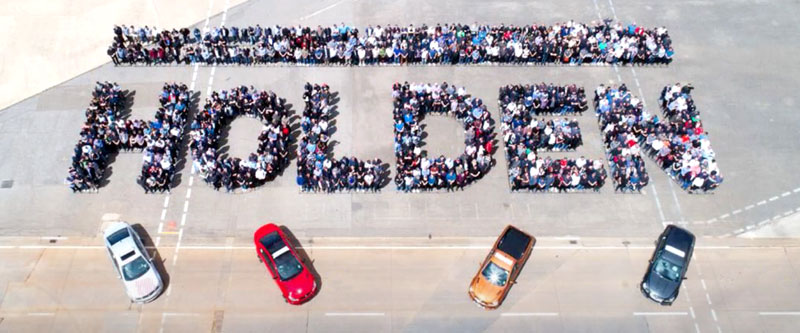23 August 2023
AUTHOR: Candy Gibson
VIDEOGRAPHER: Robbie Fatt
It's been 10 years since General Motors Holden announced its intention to quit Australia and bring down the curtain on 75 years of car manufacturing. Economists painted a grim future at the time for its retrenched workers. Did they get it wrong?
Most Australian car lovers will remember Tuesday 10 December 2013 with crystal clarity. It was the day that former Liberal Party treasurer Joe Hockey sounded the death knell on Holden.
Losing patience with the company’s constant demands for financial bailouts, Hockey issued General Motors with its marching orders in a fiery speech in Parliament, challenging them to “come clean” about their commitment to Australia.
By day’s end, GM had announced its plans to axe the Holden brand and retire the iconic car from production after 75 years.
It was a sombre day for thousands of auto workers at the company’s Elizabeth plant, not to mention multiple companies in the supply chain.
Economic forecasters didn’t improve the mood, predicting a $4 billion downturn and 65,000 jobs lost as a result of GM quitting Australia.
Ten years on, have those predictions borne fruit?
Not quite.
The forecasts were dire for South Australia at the time, but the state has remained resilient.

UniSA Business Executive Dean Professor Andrew Beer has spent the past four years investigating how Holden employees have fared since the rug was pulled from under their feet.
His research is part of a wider national study also looking at the outcomes of Toyota and Ford employees who lost their jobs in 2016 when the Victorian factories in Geelong and Broadmeadow ceased production.
Data collected from almost 800 former auto sector workers shows that more than 80% of them have found new work and most are very satisfied.
About half are earning the same salaries they enjoyed in the auto industry. A third are financially better off, yet almost 20% say their financial situation has deteriorated.
“It’s fair to say that as we sit here in 2023, many people who were made redundant from the auto industry have had pretty good outcomes – much better than expected,” Professor Beer says.
“This is due to several factors. First, the retrenched workers were highly skilled, efficient and productive employees and so their skills were highly sought after by other workplaces.
“Second, years of planning went into the closure, with significant financial assistance from industry, governments and community groups to ensure retrenched workers were given the best chance to find new employment.
“Third, notwithstanding the hiccups during Covid, the Australian economy has boomed in the past five years and there are plenty of jobs for the taking.”

UniSA Associate Professor Sally Weller, an economic geographer and sociologist, says as closures go, Holden’s was a masterclass in execution.
“In the years leading up to the closure, there was a lot of anxiety as the workers had lived with uncertainty for so long,” Dr Weller says.
“Recognising this, Holden and the state and federal governments pulled together to provide generous redundancy packages, reskilling opportunities, financial assistance and counselling.
“These actions – and a buoyant economy – helped most employees and their supply chain feeders to secure new work following the closure.”
Ben Edwards was one of these. Like many of his former workmates, Holden had been an integral part of his family for decades. His grandfather’s pride and joy was a 1970s Torana which is still in pristine condition today; two of his uncles were trades workers for Holden; three cousins worked on the shop floor; and Ben joined the firm at 18 years of age.
In 13 years, he worked his way up from factory floor to acting supervisor, leaving just before GM announced the pending closure. In new roles – firstly with the employment services sector and then the State Government – Edwards supported former Holden colleagues to upskill and access new job opportunities. Ten years on, he is Senior Industry Advisor for the SA Department for Industry, Innovation and Science.
“My experience with Holden was fantastic,” Edwards says. “I was well paid, I had access to the best training, and I learned how a global organisation worked. That stood me in great stead for what came next.
We all felt sad when Holden closed, but we also knew the writing was on the wall. Now that a decade has passed, I look back with fond memories and no anger. My eyes are firmly focused on the future.”

You can republish this article for free, online or in print, under a Creative Commons licence, provided you follow our guidelines.


